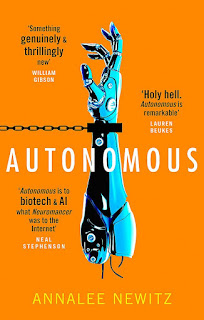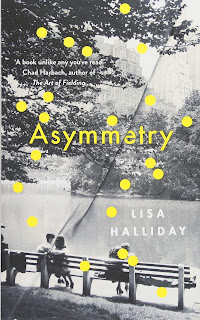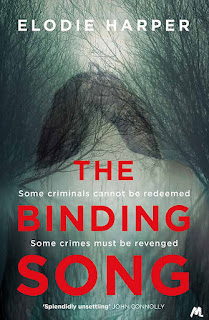Autonomous - Annalee Newitz

There are two science-fiction ideas expanded on in Annalee Newitz’s Autonomous , or maybe just the one if you want to reduce it down further to the basics of exploring human behaviour and questioning moral responses in relation to science and technology. Let’s stick with two ideas however because Autonomous has two ways of looking at the subject; one from the perspective of a human and the other from a robot. Both of them are rather concerned in their own ways about human behaviour, and even if both have their own conflicts of conscience and allegiances, the situation that they find themselves in is one that means they are setting out to conflict with each other to resolve them. The conflict that represents the main dilemma is one that Jack has been struggling with for a long time; the use of drugs and the dominance of Big Pharma to control their use and distribution. Known as Jack, former genetic engineer undergraduate Judith Chen’s response to the control of potentially life-saving




